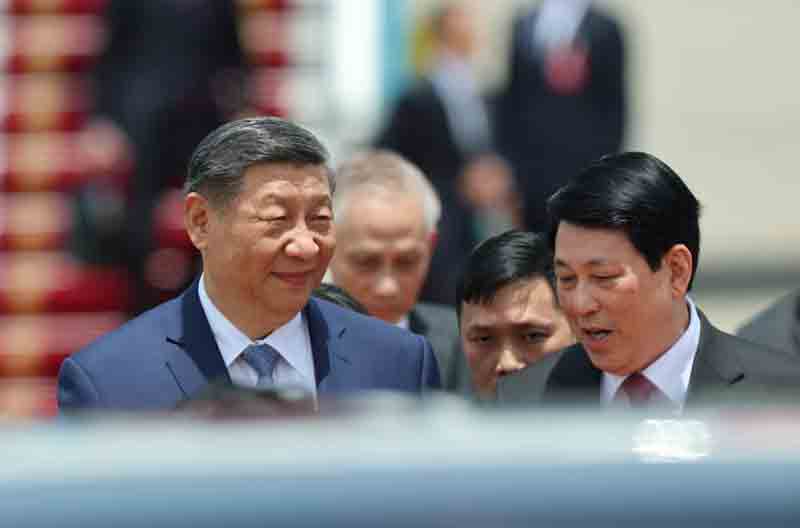Canadian and Finnish shipbuilders have presented distinct proposals to the United States regarding the production of icebreakers, forcing the U.S. to weigh its priorities: speed versus the preservation of its domestic shipbuilding industry.
In January, President Donald Trump expressed interest in acquiring 40 new icebreakers for the U.S. Coast Guard, prompting Helsinki to pursue what could be a significant agreement with Washington.
Prior to his meeting with the American president in Florida last month, Finnish President Alexander Stubb expressed hope that “icebreaker diplomacy” would strengthen Finland’s relationship with the U.S. and Trump.
However, Finland is not the sole contender, as a prominent Canadian shipbuilder, known for its expertise in constructing such vessels, is also vying for a share of the market.
“Finland is certainly aiming to construct the U.S. icebreakers in Finland. … Our discussions with the U.S. revolve around the possibility of them adopting our design to build their icebreakers in their own shipyards,” stated David Hargreaves, senior vice president of business development at Seaspan, in an interview with Defense News.
“That idea appears to be gaining considerable traction in Washington at the political level,” he continued. “Last week, we hosted a visit from a U.S. congressman, and we have been engaging in various discussions with U.S. shipyards capable of building these types of vessels,” he added.
Under U.S. legislation, the majority of Coast Guard vessels and their key components are required to be built in American shipyards to bolster domestic industries and strengthen national security. Nevertheless, the president can grant exceptions.
Trump has emphasized the urgency of delivering these vessels promptly, as the current Coast Guard fleet is nearing the end of its operational lifespan. He also aims to revitalize the nation’s shipbuilding industry.
Hargreaves commented, “The decision hinges on where America places its priorities. If the focus is on speed, then Finland may be the best option. However, if the priority remains on developing a sovereign shipbuilding capability, then Finland may not be the ideal choice.”
He also suggested that Washington might consider a hybrid approach, purchasing one or more icebreakers from Finland for quicker delivery while simultaneously initiating a program to construct the remainder domestically.
While Trump has proposed acquiring 40 new vessels, a 2023 analysis of the Coast Guard’s fleet composition indicated that the service would require between 8 to 9 polar icebreakers, including four to five heavy ones and several medium ones, to effectively carry out its Arctic operations in the future.
In recent months, trade relations between Canada and the U.S. have become increasingly tense due to a series of tariffs and retaliatory measures. On April 9, Ottawa extended tariffs on U.S. automobiles and parts, while Washington announced a 90-day suspension of certain tariffs; however, the 10% tariff on most Canadian imports remained in effect.
The shipbuilding sector has largely avoided the economic pressures affecting other industries, with ongoing collaboration between the two neighboring countries, according to Hargreaves.
“We are a business focused on exploring opportunities. Offering our designs or services to assist them in constructing icebreakers represents a viable business prospect – we intend to remain above the current controversies and maintain a long-term perspective,” he stated, alluding to the Trump administration.
In the meantime, the three nations continue to work on the trilateral Icebreaker Collaboration Effort, or ICE Pact, which seeks to leverage Finnish, Canadian, and American expertise in Arctic matters.
Representatives from each country are scheduled to reconvene in May to discuss specific actions regarding icebreaker design and production, workforce development in shipyards, and research initiatives related to polar regions.
Discover more from Defence Talks | Defense News Hub, Military Updates, Security Insights
Subscribe to get the latest posts sent to your email.





